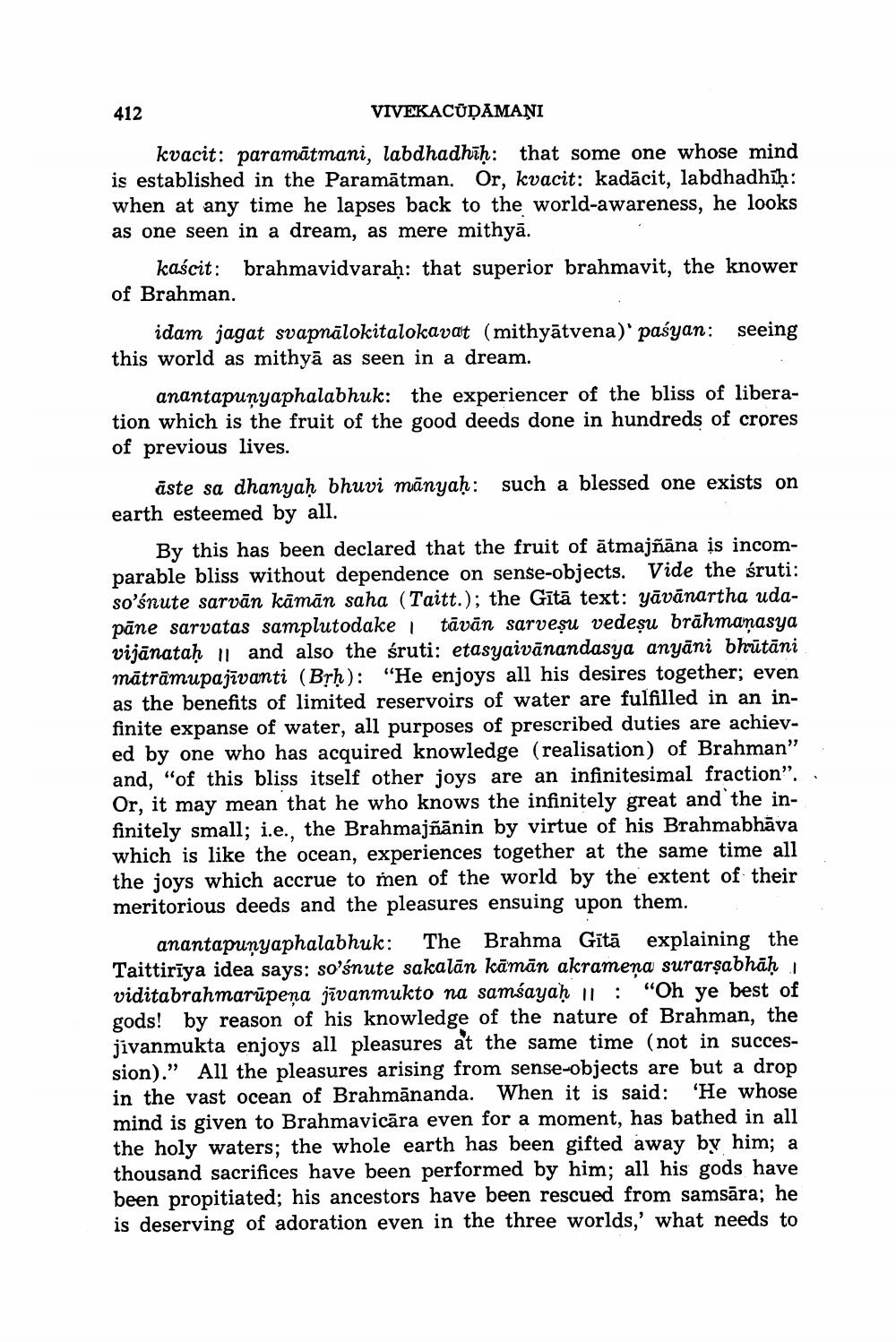________________
VIVEKACUDAMANI
kvacit: paramätmani, labdhadhiḥ: that some one whose mind is established in the Paramatman. Or, kvacit: kadācit, labdhadhiḥ: when at any time he lapses back to the world-awareness, he looks as one seen in a dream, as mere mithyā.
412
kaścit: brahmavidvaraḥ: that superior brahmavit, the knower of Brahman.
idam jagat svapnālokitalokavat (mithyātvena)' pasyan: seeing this world as mithya as seen in a dream.
anantapunyaphalabhuk: the experiencer of the bliss of liberation which is the fruit of the good deeds done in hundreds of crores of previous lives.
aste sa dhanyaḥ bhuvi manyaḥ: such a blessed one exists on earth esteemed by all.
By this has been declared that the fruit of ātmajñāna is incomparable bliss without dependence on sense-objects. Vide the śruti: so'śnute sarvan kāmān saha (Taitt.); the Gītā text: yāvānartha udapāne sarvatas samplutodake tāvān sarveṣu vedeșu brāhmaṇasya vijānataḥ and also the śruti: etasyaivānandasya anyāni bhūtāni mātrāmupajīvanti (Brh): "He enjoys all his desires together; even as the benefits of limited reservoirs of water are fulfilled in an infinite expanse of water, all purposes of prescribed duties are achieved by one who has acquired knowledge (realisation) of Brahman" and, "of this bliss itself other joys are an infinitesimal fraction". Or, it may mean that he who knows the infinitely great and the infinitely small; i.e., the Brahmajñānin by virtue of his Brahmabhāva which is like the ocean, experiences together at the same time all the joys which accrue to men of the world by the extent of their meritorious deeds and the pleasures ensuing upon them.
anantapunyaphalabhuk: The Brahma Gītā explaining the Taittiriya idea says: so'śnute sakalān kāmān akrameņa surarṣabhāḥ viditabrahmarupeņa jīvanmukto na samsayaḥ 11: "Oh ye best of gods! by reason of his knowledge of the nature of Brahman, the jivanmukta enjoys all pleasures at the same time (not in succession)." All the pleasures arising from sense-objects are but a drop in the vast ocean of Brahmananda. When it is said: 'He whose mind is given to Brahmavicāra even for a moment, has bathed in all the holy waters; the whole earth has been gifted away by him; a thousand sacrifices have been performed by him; all his gods have been propitiated; his ancestors have been rescued from samsara; he is deserving of adoration even in the three worlds,' what needs to




